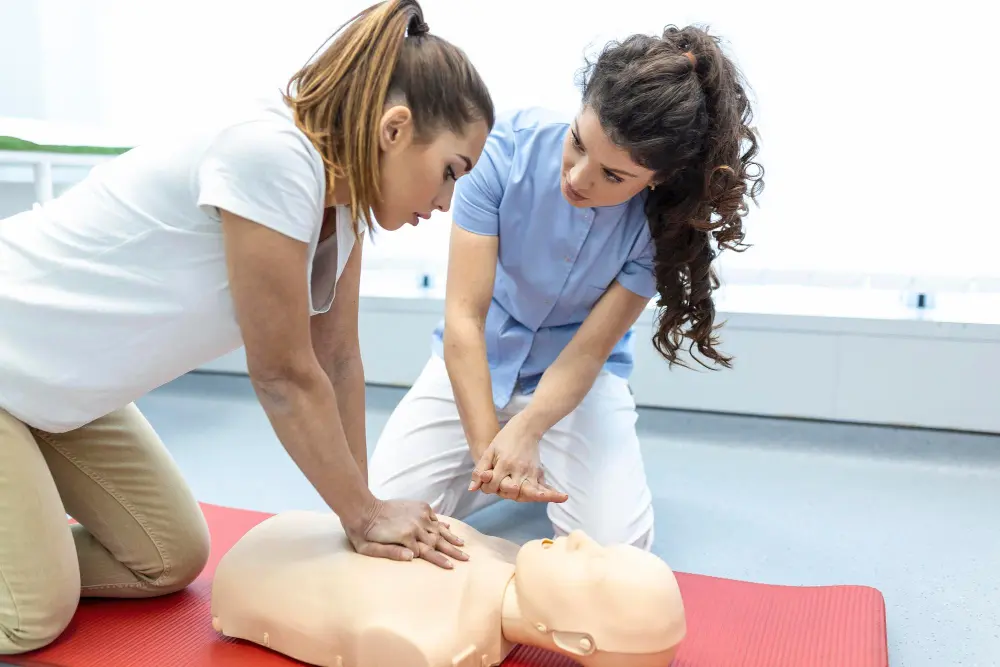HeartSaver First Aid

HEARTSAVER FIRST AID
Your choice of a traditional classroom or blended eLearning class. Cost is $50 when added with a CPR class. Call for price bundle with other safety classes. The Heartsaver First Aid course trains participants first aid basics for the most common first aid emergencies, including how to recognize them, how to call for help, and how to perform lifesaving skills. Reflects science and education from the American Heart Association Guidelines Update for CPR and Emergency Cardiovascular Care (ECC) and the 2020 AHA/Red Cross Guidelines for First Aid.
*** please call 1-704-313-8849 to schedule ***
Who should take this course?
The AHA Heartsaver First Aid Course is designed for anyone with limited or no medical training who needs a course completion card in first aid to meet job, regulatory, or other requirements.
What does this course teach?
First aid basics Medical emergencies Injury emergencies Environmental emergencies Preventing illness and injury.
“HeartSaver First Aid” is another American Heart Association (AHA) training program, and it focuses on teaching basic first aid skills to laypersons or individuals who may need to respond to medical emergencies in various settings, such as the workplace, community, or home.
Here are some key components you might find in a HeartSaver First Aid course:
- Medical Emergencies: Participants learn how to recognize and respond to common medical emergencies such as heart attacks, strokes, and seizures.
- Injury Emergencies: The course covers how to provide first aid for injuries, including cuts, burns, fractures, and other trauma.
- Environmental Emergencies: Participants may learn how to respond to environmental emergencies such as heat-related illnesses, cold-related illnesses, and allergic reactions.
- CPR and AED Basics: While not as in-depth as the dedicated CPR/AED courses, HeartSaver First Aid may include basic CPR and AED training.
- Choking Relief: Instructions on how to help someone who is choking.
- Skills Practice: Like other AHA courses, participants usually have the opportunity to practice these skills on manikins to gain hands-on experience.
- Written Test: Some courses may include a written test to assess understanding.
- Certification: Successful completion of the course results in a certification card that is typically valid for two years. Recertification is generally required to stay current on first aid techniques and guidelines.
